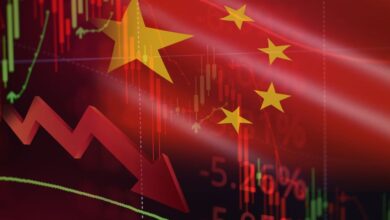Asian Stock Markets Navigate Through Economic Uncertainties

Asian stock markets have recently displayed a complex pattern of movements, with indices across the region showing mixed results amidst a variety of economic signals. In Japan, the Nikkei 225 and TOPIX indexes witnessed a decline, falling by 0.7% and 0.5% respectively. This downward trend was attributed to profit-taking activities by traders, following a period of significant gains that saw the indexes reach their highest levels in 34 years. The Bank of Japan’s stance contributed to the uncertainty in the markets, as it hinted at a potential shift in its ultra-dovish monetary policy, while also signaling its continuation in the near term.
Contrasting the situation in Japan, the Hang Seng index in Hong Kong experienced an upward trajectory, climbing 1.3%. This positive movement was largely driven by a surge in technology stocks, with Alibaba Group leading the charge. The company’s shares increased by 5% after reports emerged of share purchases by its co-founders. This rise in Alibaba’s shares had a ripple effect, uplifting other major tech companies within the index and contributing to the overall gains in the Hong Kong market.
The broader sentiment in Asia remained cautious, with traders keeping a close eye on upcoming key economic data and major tech earnings reports. The Shanghai Shenzhen CSI 300 and Shanghai Composite indexes in China both saw declines, with drops of 0.7% and 0.4% respectively. The cautious approach towards China’s markets was influenced by concerns over the pace of the country’s economic recovery in the post-COVID era.
In Australia, the markets showed resilience, with the ASX 200 index maintaining a steady position despite Woodside Energy Ltd. reporting a revenue increase that fell short of expectations. South Korea’s KOSPI index also experienced a slight decrease, dropping by 0.3%. The anticipation of higher US interest rates for a prolonged period added to the cautious atmosphere in the broader Asian markets. Nonetheless, the impact of this sentiment was somewhat mitigated by the record-high finishes on Wall Street, which helped to limit significant losses across the region.
The trading activities of the day in Asia highlighted the intricate interplay between regional economic indicators and global market forces. While Japan’s markets grappled with potential changes in monetary policy, Hong Kong’s tech sector emerged as a beacon of optimism amidst wider concerns about China’s economic resurgence. The overall cautious sentiment was balanced by stability in Australian markets and the recent upbeat performances in US markets.
The day’s trading in Asia underscored the complex and dynamic nature of regional economies and their interdependence with global economic trends. As the world’s economic landscape continues to shift, these market movements serve as a reminder of the ongoing adjustments and adaptations that characterize the financial world. The mixed results across stock markets reflect the multifaceted challenges and opportunities that lie ahead as economies navigate through economic uncertainties.
Source link



